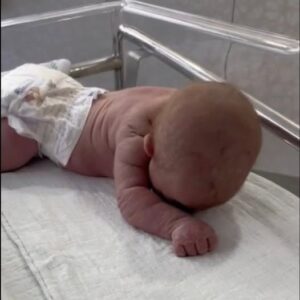A girl who has given birth at the age of 11 is believed to be the youngest ever mother in the UK, with her family reportedly unaware that she was pregnant, according to various reports. This shocking news has raised many questions not only about her circumstances but also about the broader implications regarding child welfare and protection.
The young girl, who was only 10 years old when she became pregnant, welcomed her child earlier this month. Thankfully, both she and her baby are reported to be in good health, as stated by the Sun. The case has drawn attention not just for its sensational aspects but also for the serious implications it holds for understanding the experiences of minors in such situations.
In light of these events, social services are conducting an investigation into the circumstances surrounding the young girl’s pregnancy. They are currently in discussions with her family, who were reportedly unaware of her condition throughout the pregnancy. This aspect raises troubling questions about parental awareness and the support systems in place for young children, which are vital for safeguarding their well-being.
It is important to note that younger mothers face a higher risk of complications during pregnancy and childbirth. These complications may include premature labor, infections, and conditions such as pre-eclampsia, which can threaten both the mother’s and baby’s health. Awareness and education on these risks are essential for both parents and young people alike, highlighting the importance of sexual health education and open dialogue within families.
There was also a reported case in 2017 of another girl in the UK giving birth at the age of 11, although further details about this incident did not emerge. Each case adds layers to our understanding of adolescent pregnancy, prompting discussions on how society can better support vulnerable children and prevent such situations in the future. The ongoing investigation and responses from social services will likely shed more light on this particular case and its broader implications for child welfare policies across the UK.





